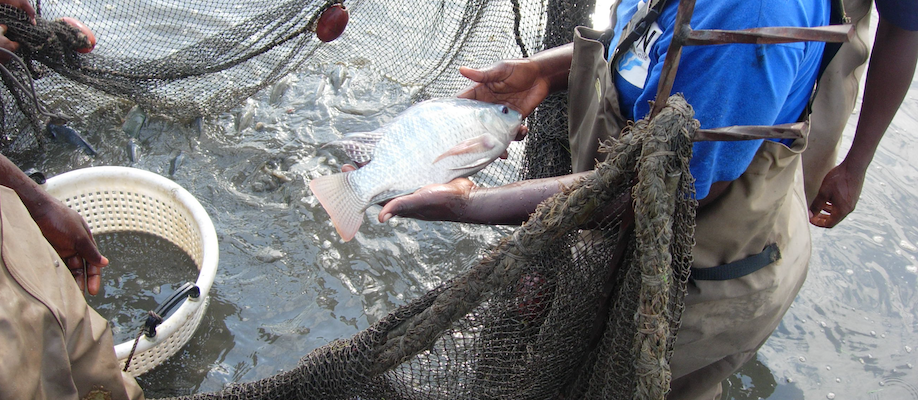Does COVID-19 Make Aquaculture More Vulnerable to Food Waste?
Ansen Ward, 15 July 2020
Unlike capture fisheries, fish farmers have fish that need to be fed and looked after. Before COVID-19, loss and waste could be minimised because of the control over farmed fish in terms of harvesting time, post-harvest handling and known markets. But during COVID-19, having fish to look after and feed in light of much reduced marketing options can be a burden, which makes aquaculture more vulnerable to loss and waste.
Aquaculture encompasses small household enterprises as well as multi-national companies with large investments spanning different continents. It can be low input with basic equipment and simple feeds, or highly mechanized and employing advanced feeding, harvesting and processing technology.
However, it takes months of care and attention to rear a fish to marketable size. For many farmers, this process may have started well in advance of COVID-19 and the resultant closure of catering and food service providers and other market outlets, including supermarket fish counters, means fish is not being harvested for sale. With no revenue and yet the need to feed fish to keep them alive and healthy, farmers may be facing a dilemma. The economics may be saying…kill some fish just to reduce expenses, otherwise the business might not survive. And dead fish without a market often means waste!
The implications are not only increased food waste, but increased greenhouse gas emissions, especially if the fish are put into landfill, as well as lost income and perhaps business closure. In such situations, perhaps there should be more of a focus on preserving fish which has to be harvested. Freezing, canning, salting and drying are options, assuming that these methods are economic.
COVID-19 may be making aquaculture more vulnerable to food waste. Understanding the impact on small-scale producers in less developed countries will be important and strategies to mitigate the fall-out from loss of market opportunities may be required in future.
Find more information and resources on how to reduce food loss and waste in aquaculture here.

